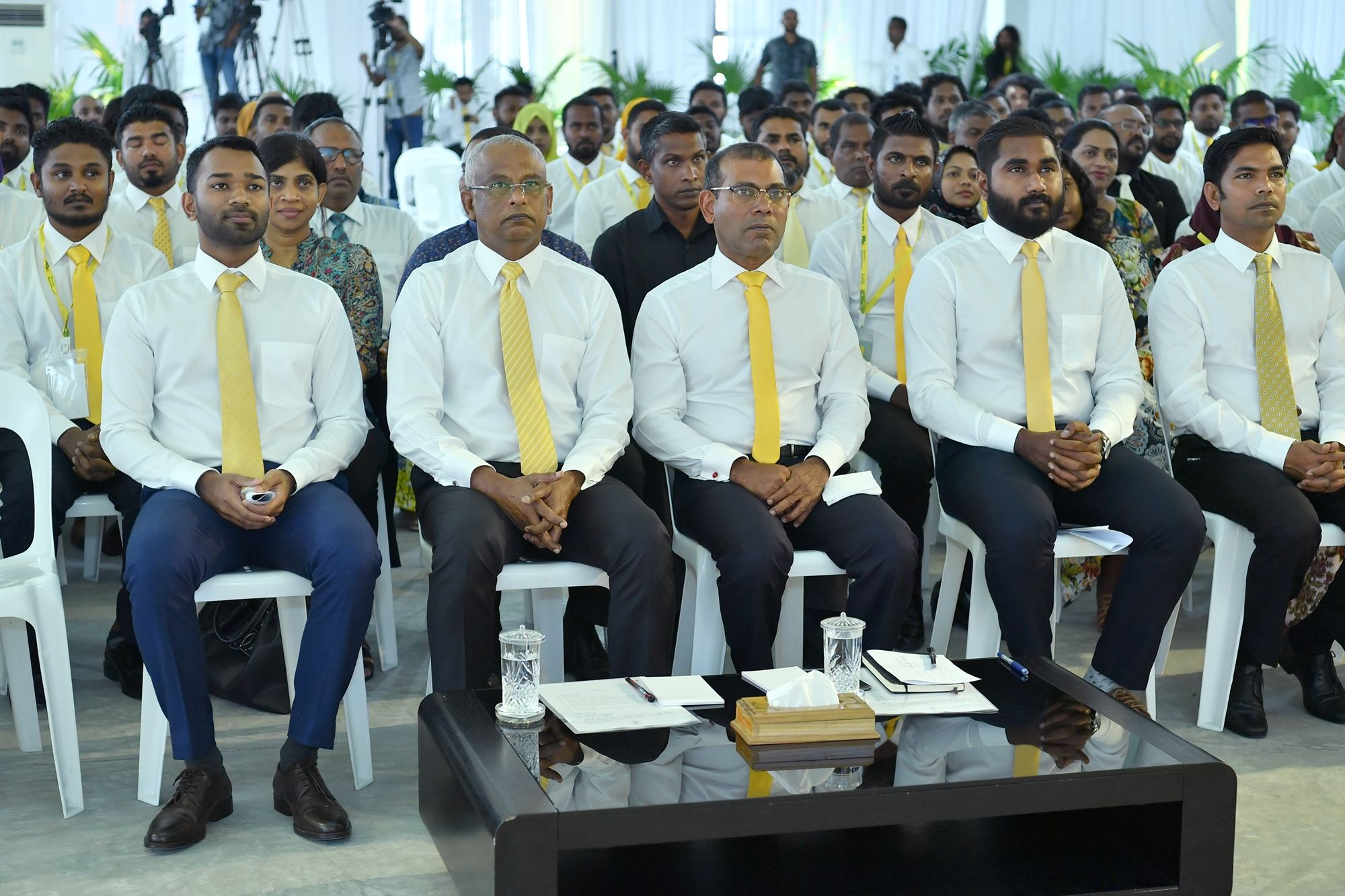Rift emerges between Maldives president and speaker
Solih publicly rebuked Nasheed for the first time.

10 Sep 2019, 09:00
President Ibrahim Mohamed Solih publicly rebuked Speaker Mohamed Nasheed for the first time on Monday, fuelling speculation of a portentous rift between the “childhood friends” and leaders of the ruling Maldivian Democratic Party.
Divisions arose in the wake of a presidential commission’s revelations last week about the suspected murder of journalist Ahmed Rilwan by a local extremist group with links to al-Qaeda.
The findings prompted Nasheed to repeat his warnings of a “deep state” with terrorist sympathisers in strategic positions, and to persistently criticise the failure to arrest police intelligence officers who followed Rilwan and listened to his calls weeks before the abduction. Speaking at an MDP council meeting on Sunday night, Nasheed claimed to have been told by the Maldives National Defence Force that he himself was under surveillance by the police.
At a press conference the following day, a visibly vexed Solih backed the security service’s denial of spying on Nasheed and expressed displeasure with the speaker – without naming him – for sharing the commission’s draft report with opposition parliamentary group leaders and making a summary available to the public.
Become a member
Get full access to our archive and personalise your experience.
Already a member?
Discussion
No comments yet. Be the first to share your thoughts!
No comments yet. Be the first to join the conversation!
Join the Conversation
Sign in to share your thoughts under an alias and take part in the discussion. Independent journalism thrives on open, respectful debate — your voice matters.




